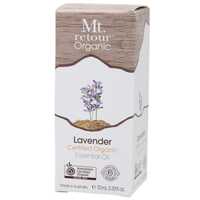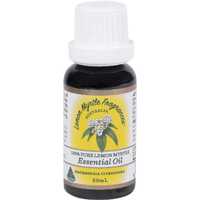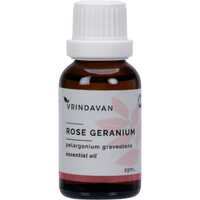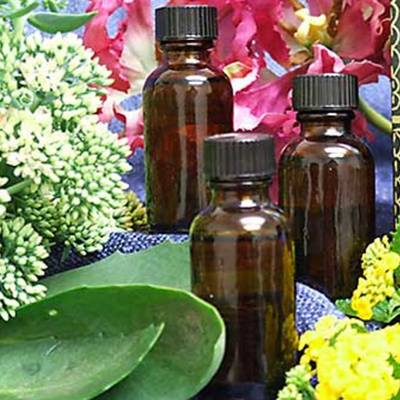Though their healing properties have been utilized for centuries, essential oils- and aromatherapy- seem to have recently gained ubiquitous popularity. While you can find them virtually everywhere from the dollar store to high end apothecaries, how do you know if you're finding a quality oil? Does "most-expensive" equal best quality? This guide will help you decipher labels, and help you find quality essential oils.
It seems reasonable enough that a "pure" essential oil should be a quality oil as well, right? Unfortunately, no. Improperly distilling the essential oil, deriving oils from sub par plants, even the region of plant growth greatly affects the quality of even "pure" essential oils. Although terms like "therapeutic grade" and "certified pure" may seem indicative of a quality product, they may simply be good marketing. While most EO companies go through stringent quality testing, there is no world-wide certification process. Labeling an essential oil "Grade A" is a company set standard, not a regulated qualification. Don't let these terms be your only factor for making your selection.
What about ingesting essential oils? Certainly oils that deem themselves safe for consumption are a better choice, yes? Again, not quite accurate. Ingesting essential oils now incorporates the digestive system and organs not necessarily designed to process most oils. Just because something is organic and/or natural (think mushrooms) doesn't mean that they can't be toxic to ingest. In order to safely ingest essential oils, seek guidance from a health practitioner familiar with your specific health history and any possible medication contraindications.
So, what should you look for when selecting essential oils? Ideally, essential oils should be in dark bottles to prevent sun or light damage. Generally essential oils can be stored at room temperature, or in a cool dark place. Though most have an extensive (decades) shelf-life, citrus oils tend to break down and lose their effectiveness after 1-2 years.
How can a little bottle be so expensive? It can take over one hundred pounds of plant material to produce one ounce of essential oil. Though the most-expensive option isn't necessarily the best, a quality product won't be cheap. Due to sustainability practices, and availability, price may very greatly between different essential oils even within the same brand. Some plants grow in regions difficult to access and are susceptible to climate or catastrophic events: recent earthquake in Nepal, for example. Although the price may seem high for less than a half ounce, even using a drop or two daily can last an extensive period of time.
When it comes to labels, look for the country name where the plant originated (ie. Tunisian Rosemary) and/or the botanical name (ie. rosemary: Rosmarinus officinalis). "Organic" is another quality indicator, but many smaller companies may be able to source wild-crafted or local artesian crops comparable to organic.
Therapeutic properties of essential oils are seemingly endless. Choosing high-quality oils helps assure that you'll receive the greatest benefits. Equally important to selecting essential oils is properly using them. In their pure state, many essential oils (clove, for example) are especially powerful and can irritate or burn the skin with direct contact. Before applying them to your body, dilute a few drops in a carrier oil (such as jojoba, coconut, or a seed-rich oil). Or, add a few drops to a warm bath or a diffuser. Of course, simply inhaling them is purely beneficial on its own.
As you can see, there's quite a lot to consider when buying the right EO. That is where Healthy Being comes in, they've done all the hard work for you! They've carefully selected the higest grade and best quality essential oil range - so you can rest assured that what you're buying ticks all the right boxes:)
*Essential oil information is not intended as an alternative to medical advice or treatment. Ask your health practitioner before adding essential oils to your well-being routine, especially if you are pregnant or nursing, or using on infants and children.
...and remember, qualified nutritionists at Healthy Being are available to offer further general advice to help guide you in selecting the right products. So please, feel free to contact us at anytime!
 Stefanie Rock is a Nationally Board Certified Massage Therapist and a regular contributor to HB Insights. A green living educator, she frequently facilitates presentations and has written hundreds of articles on creating a healthier lifestyle for yourself and the environment.
Stefanie Rock is a Nationally Board Certified Massage Therapist and a regular contributor to HB Insights. A green living educator, she frequently facilitates presentations and has written hundreds of articles on creating a healthier lifestyle for yourself and the environment.


 Certified Organic
Certified Organic Vegan Friendly
Vegan Friendly  Vegetarian
Vegetarian Organic Ingredients
Organic Ingredients Dairy Free
Dairy Free Gluten Free
Gluten Free Keto Friendly
Keto Friendly
































